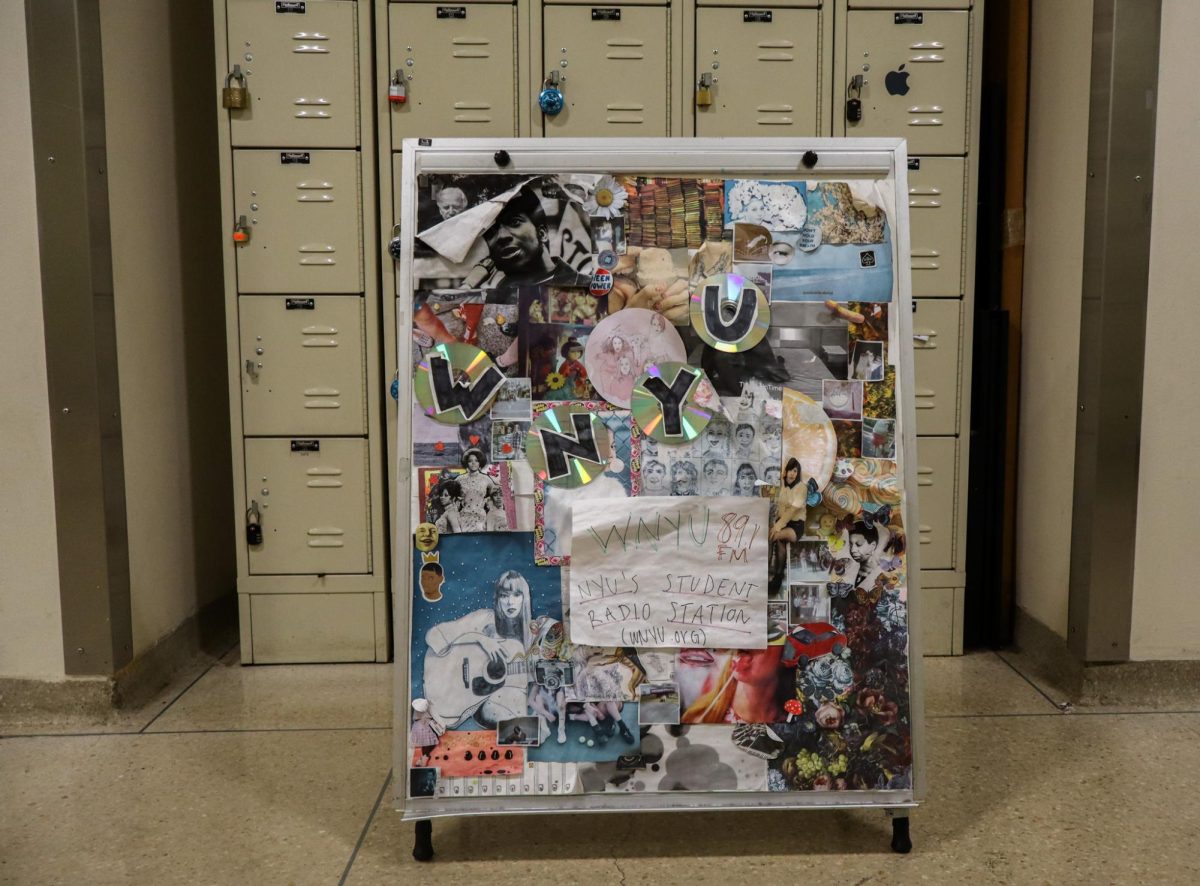I was over-the-moon excited when I heard that WNYU’s sports department was airing a new podcast titled “The Girl’s Locker Room.” Being a female athlete myself, as well as a fan of, and advocate for, representation within the realm of women’s sports. I was fired-up to hear that there were voices on NYU’s campus discussing the experience of being a woman in sports — I knew immediately that I wanted to write a review about the show.
What I did not know then was that this review was going to be one of disappointment, of yet another conversation concerning female misrepresentation and of sizable confusion regarding why WNYU’s sports department deems the podcast’s message acceptable.
“The Girl’s Locker Room is a podcast that dumbs down sports to a level that pretty much anyone can understand — it’s directed to an audience of girls,” CAS sophomore Rachel Squitieri, host and creator of “The Girl’s Locker Room,” said.
In addition to framing the podcast as a way to “dumb down” sports for women, the show’s title, “The Girl’s Locker Room,” is incredibly misleading for two reasons. First, it is easy to assume that, due to their gendered title, the podcast highlights women’s sports stories in some sense — it does not. Second, it would seem as though it would not contribute to dated sports stereotypes that frame women as the clueless, passive spectator. But unfortunately, it does exactly the latter.
“The Girl’s Locker Room” was created as a way to easily inform “the girlies,” as Squitieri strictly puts it, about sports. On each episode, Squitieri brings a supposed expert to simply explain the basics of the sport highlighted in a given episode. For example, in the third episode of the podcast, “A Girlies’ Guide to Hockey,” Squitieri invites her own boyfriend onto the show to explain the fundamentals of hockey — from the rules of icing to the game’s six specific positions.
“It helps our listeners — I call them the girlies — understand things that they would not get from just watching [sports] on the TV,” Squitieri said.
Beyond spreading information regarding the fundamentals of a sport, I wanted to know what Squitieri’s deeper reasoning was for creating the podcast. After admitting that she “doesn’t like sports at all,” Squitieri stated that her boyfriend gave her the idea of calling the podcast “The Girl’s Locker Room.” The cliche of contributing to a boyfriends’ athletic interests lingers behind the podcast’s crux.
Whether you have been attuned to sports since Taylor Swift and Travis Kelce started dating, or are a die-hard sports fan, is irrelevant — women and girls have always been interested in sport. Especially right now, when women’s sports are not merely having their long-awaited moment in the media, but they are currently striking a movement — a movement that is actively changing the way female athletes are perceived.
This movement involves female athletes, journalists, broadcasters, business investors, fans and anyone who cares about the industry and its progress. From shattering NCAA, WNBA and NWSL viewership records, to the creation of women’s sports media outlets such as RE-INC, The Women’s Sports Foundation and The Women’s Game, the landscape of sport is moving forward.
“The Girl’s Locker Room” never intended to contribute to this space. The podcast resides in its own category, and in theory, is a great concept. Sports should be for everyone — no matter the participant’s level of preliminary experience or knowledge. Women, in particular, who have historically been dissuaded from partaking in athletics, should not be left out of any conversation they desire to participate in.
This WNYU podcast, however, misses the mark of accessibility entirely. Despite being well-intentioned, the framing and chosen language of the podcast perpetuates an antiquated, stereotypical take on what it means to be a female-identifying fan or athlete.
Worst of all, the podcast presents sports as a mere mechanism for women to get closer to their boyfriends. In reality, sports are a lifestyle, preeminent passion, career path and a socially, financially and politically liberating implement for women all over the world.
“Women want to go home and watch football, basketball and baseball with their boyfriends,” Squitieri said. “They want to be able to understand what they’re talking about. They want to go to a Super Bowl party and understand what the heck is happening on the TV in front of them.”
In an effort to gain a better grasp on the show’s forethought, I spoke with SPS junior and Sports Director at WNYU, Maddie Mendelsohn. In addition to overlooking the 20 shows that air through WNYU Sports, Mendelsohn hosts seven of her own shows focusing on baseball. She recently appeared on the “Girlies’ Guide to Baseball” episode as well.
“I think it’s a fine show idea. It’s great to make sports more accessible, and however she wants to aim it I think it creates success,” Mendelsohn said. “Clearly it has expanded to the point where you guys [WSN] have heard about it and have been able to now capitalize on speaking about it, which is a great thing.”
In a world where there is certainly no shortage of sports podcasts — even at NYU, a school not necessarily defined by its athletic legacy — the ways we choose to discuss women on these platforms matter. As history continually reminds us, our conversations do hold a significant weight as they create a reality for the women who occupy, and have always occupied, a place in sports — boyfriends notwithstanding.
Contact Levi Langley at [email protected].
























































































































































